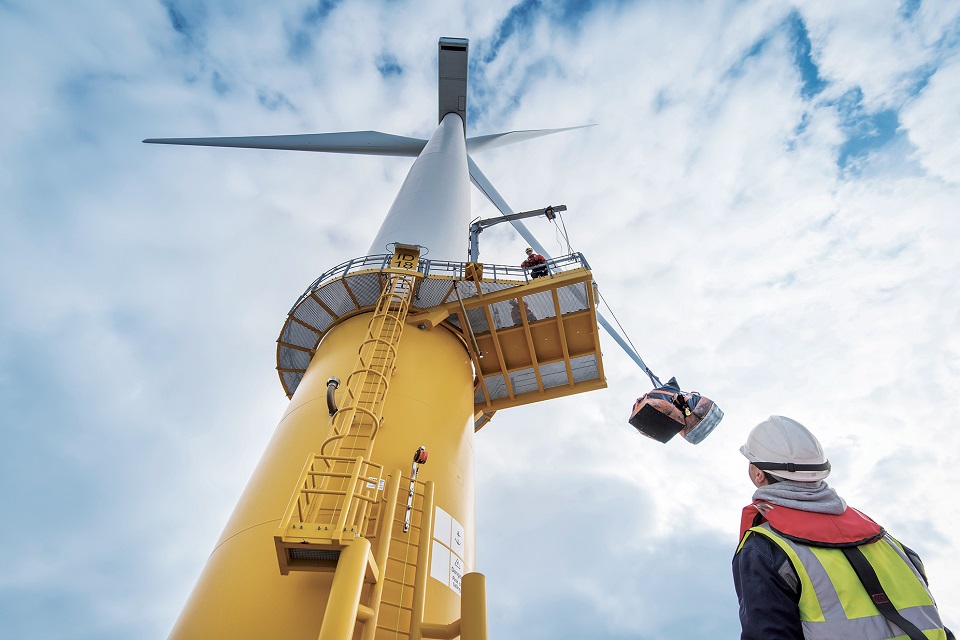
Job profile
Environmental engineer (m/f/d)
Creating a healthy habitat for humans, animals, and plants, along with a sustainable economy that conserves resources, is the mission of an environmental engineer. These professionals analyze current conditions and develop modern technologies aimed at protecting the environment.
Here, you can learn about the specific tasks of environmental engineers, their earnings in this field, and the training required to pursue a career in environmental engineering.
Are you looking for an environmental engineer job (m/f/d)?
Are you looking for an experienced and competent environmental engineer (m/f/d)?
Are you looking for a new project as a Business Development Manager (m/f/d)?
What is an environmental engineer (m/f/d)? Definition and overview
Environmental engineers specialize in developing scientific and technical solutions to address and prevent environmental issues.
This profession encompasses a broad range of tasks, including assessing and controlling environmental pollution, developing sustainable technologies, and optimizing existing systems like waste and water treatment plants.
Environmental engineers work at the intersection of science, technology, and society, playing a key role in shaping a sustainable future. They leverage their technical expertise to tackle complex environmental challenges, such as reducing greenhouse gas emissions, improving water quality, and minimizing the impact of human activities on natural ecosystems.
Key areas in environmental technology include:
Waste management
Air pollution control
Water body protection
Noise and radiation protection
Renewable energy
Overall, the role of an environmental engineer is crucial in addressing the most urgent environmental issues of our time. Their work significantly contributes to enhancing the quality of life and ensuring a sustainable future for generations to come.
Environmental engineer salary (m/f/d) in Switzerland: A comprehensive overview
Environmental engineers in Switzerland earn an average annual gross salary of approximately CHF 84’500.00, according to the jobs.ch portal. Factors such as holding a Master’s degree, working for a large company, or being employed in a major city can positively influence salaries in this field.
The highest salaries for environmental engineers are typically found in the finance and healthcare sectors.

Starting Salary as an Environmental Engineer (m/f/d) in Switzerland: Earnings After Graduation

Senior Environmental Engineer (m/f/d) Salary: Earnings as an Experienced Manager
What does an environmental engineer (m/f/d) do? Tasks and activities
Environmental engineers perform a wide range of tasks that vary significantly based on their field of work and specialization. They serve as a crucial link between society and the economy, ensuring a sustainable future and compliance with environmental laws and guidelines within companies.
Environmental engineers can choose between two main areas: production, where they develop new technical solutions, and analysis and design, where they evaluate and improve existing systems and devices.
The specific tasks of environmental engineers include:
Pollution Assessment and Control: Developing and implementing strategies to reduce air, water, and soil pollution. Conducting environmental audits and preparing impact reports for various projects.
Consultation and Collaboration with Stakeholders: Working closely with other professionals, government agencies, and businesses. Advising stakeholders on environmental issues and collaborating to develop sustainable solutions.
Conducting Environmental Research: Undertaking research projects to develop new methods for solving environmental problems. Analyzing data and using scientific methods to test hypotheses and draw conclusions.
Improving Water and Waste Disposal Systems: Designing and optimizing systems for water treatment and waste disposal to enhance their efficiency.
Development of Sustainable Technologies: Working on the creation and implementation of technologies aimed at reducing energy consumption and minimizing environmental impact.

How to Become an Environmental Engineer (m/f/d)? Your Path to a Career in Environmental Engineering
To establish a career in environmental engineering in Switzerland, a university degree is essential. There is no apprenticeship for environmental engineering, but gaining professional experience through internships or volunteer work can facilitate entry into the profession.
Studying Environmental Engineering: The Academic Route
The typical path to becoming an environmental engineer involves studying environmental engineering at a university or university of applied sciences in Switzerland or abroad.
A degree program in environmental engineering covers subjects such as physics, mathematics, biology, computer science, and specialized topics like earth observation and waste recycling. This comprehensive education prepares students for their future careers.
Towards the end of their studies, students select a specialization for their career in environmental engineering. Options include Energy in Buildings, Energy Systems, Sustainable Management, and Cleantech.

Business development training
In Switzerland, there are other business development management training courses in addition to a suitable degree course that will pave the way for your career. One example is the Digital Business Development (CAS) certificate, which you can complete at Bern University of Applied Sciences. At the University of St. Gallen, you can attend a three-day seminar on business development.
A completed technical education that matches the chosen industry is also suitable as a basis for a career as a Business Development Manager.
Essential Skills for -environmental Engineers
Environmental engineers need a comprehensive understanding of various scientific disciplines, including chemistry, biology, physics, geology, and mathematics. Additionally, they must be knowledgeable in several engineering fields, such as civil, chemical, and mechanical engineering.
Key skills for environmental engineers include:
Analytical Skills: Ability to interpret complex data and make informed decisions.
Teamwork and Independence: Capability to work both independently and collaboratively.
Communication Skills: Proficiency in conveying findings and recommendations to diverse stakeholders.
Project Management: Skills to efficiently oversee and manage environmental projects.
Overall, environmental engineers must possess a deep understanding of scientific principles, strong analytical abilities, and problem-solving skills. Their work significantly contributes to enhancing the quality of life and ensuring a sustainable future for generations to come.
Environmental engineering careers: opportunities in environmental technology
Sustainability and environmental protection are becoming increasingly significant in today’s society, leading to a growing demand for environmental engineers. These professionals often work in the environmental sector, planning offices, industry, or the public sector. Many industries are now seeking expertise in environmental engineering.
“Green jobs” like these are gaining importance. Among all environmental protection professions, the role of an environmental engineer is the most prevalent. It is a highly sought-after career with a promising future, provided you are committed to continuous learning.

Top vacancies for environmental engineers (m/f/d): Jobs throughout Switzerland
FAQ
On average, an environmental engineer in Germany earns a gross salary of € 53,000 per year. After several years of experience and increasing responsibility, this salary can rise to € 98,000.
An environmental engineer develops, analyzes and improves technical equipment with the aim of protecting the environment and enabling a sustainable energy supply. With his multifaceted tasks, he is an important interface between society and the economy.
As a graduate environmental engineer, you can work in various fields such as environmental economics, transportation planning, mechanical engineering or research. You can also take on a consultancy role for other organizations.
Environmental engineers are increasingly in demand on the market. While the demand for suitable specialists in environmental protection is generally increasing, engineers are the most sought-after professional group.
Our locations

